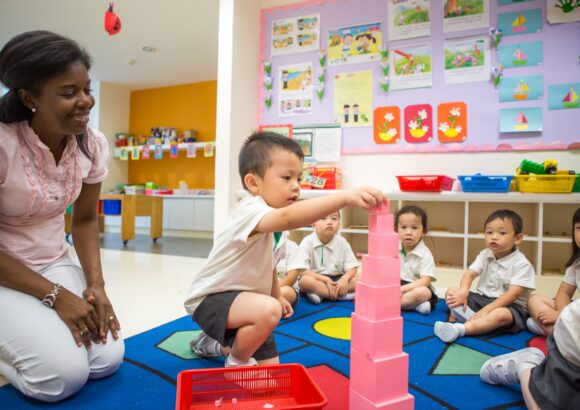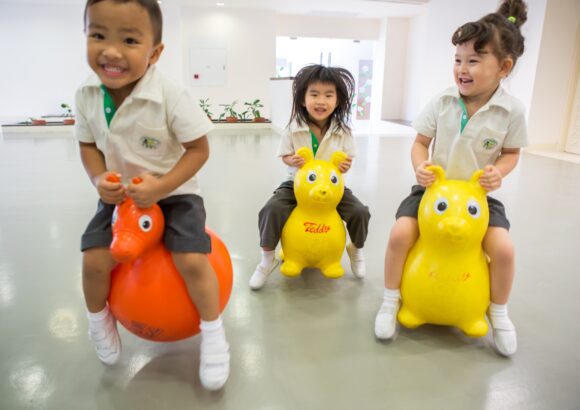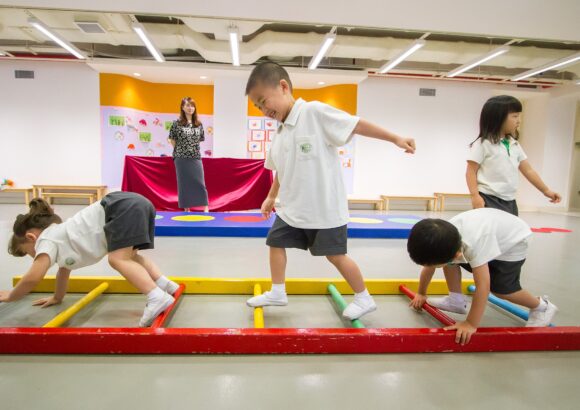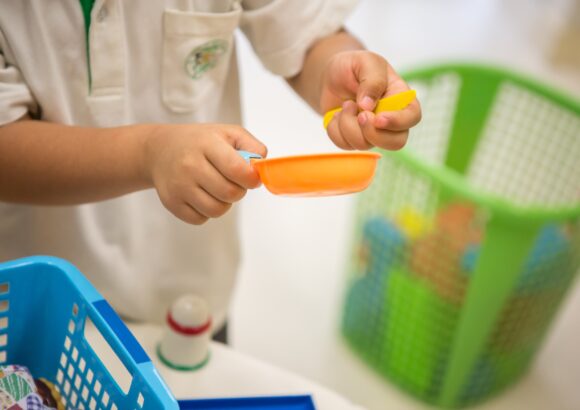As parents, it fills us with a joy to hear from our daughter about all the fun as well as learning she experiences each day. The School of the Nations also addresses my daughter’s emotional and social well-being. Their programs and activities empower all kids to engage with, question, and analyse the world around them which serves to enrich their lives and strengthen one’s love for others.
Kindergarten
Vision of Early Childhood
We view early childhood as a key period in the formation of good habits and a virtuous character.
During this period the foundations for the understanding of science, mathematics, language, and other branches of learning are established.
It is also the time when fundamental concepts and understandings of the purpose of human life and the relationship between individuals begin to develop.
It is essential that careful attention be given to the development of an early childhood education programme that will raise up individuals who will be able to contribute to the welfare of their families and communities and the progress of society. This is especially important today, when humanity is undergoing rapid changes in almost all aspects of its collective life.
Kindergarten Programme
In response to this vision, the Hidden Gems Early Childhood Education Programme was developed over a number of years by the Badi Foundation. It has been implemented at the kindergarten level of School of the Nations for over 20 years.
Inspired by Bahá’i principles and forward-thinking concepts of education, the programme integrates physical, intellectual, and spiritual education over a three-year period.
The Programme is organized in three main areas: Character Development, Science, and Mathematics. Each area uses a wide variety of methods and activities designed to stimulate the development of moral, social, and intellectual capabilities in children from age 3.
In K1, there are three classes with up to 16 students each. Once reaching K2, students are divided into two classes with up to 24 pupils.
Each Kindergarten class has a general homeroom teacher and a Mandarin language teacher.
A teaching assistant is assigned to each K1 and K2 class.
Kindergarten students eat lunch with their teachers and enjoy a designated indoor and outdoor play space.
The school day starts at 8:30am and ends at 2:40pm.
Character Development
Character development lessons focus on initiating the development of moral capabilities, such as being a loving and responsible family member and promoting harmony and unity.
This is approached through the memorization of short inspirational passages and an exploration of their practical meaning through stories, role plays, discussions, games, and arts.
Language
The language programme focuses on both English and Mandarin language abilities. Students learn to read and converse in both languages.
Phonics is used to develop English language reading skills.
About 70% of instruction is English-medium and the remaining 30% is in Mandarin Chinese.
Mathematics
The mathematics component begins to establish in the children the skills and attitudes that allow them to create order, describe the world mathematically, and to quantify and compare the things they encounter.
This contributes to clear and impartial thinking. The ability to see relationships and patterns is also applicable to the social, emotional, and spiritual realms we inhabit.
Science
The Science program lays the foundation for a scientific approach to life. It aims to establish an intuitive understanding of systems by exploring the family, the world around us, and the human being.
Scientific concepts are often connected to their and moral and behavioral implications.



